General election 2017: Labour calls for halt to hospital cuts
- Published
- comments
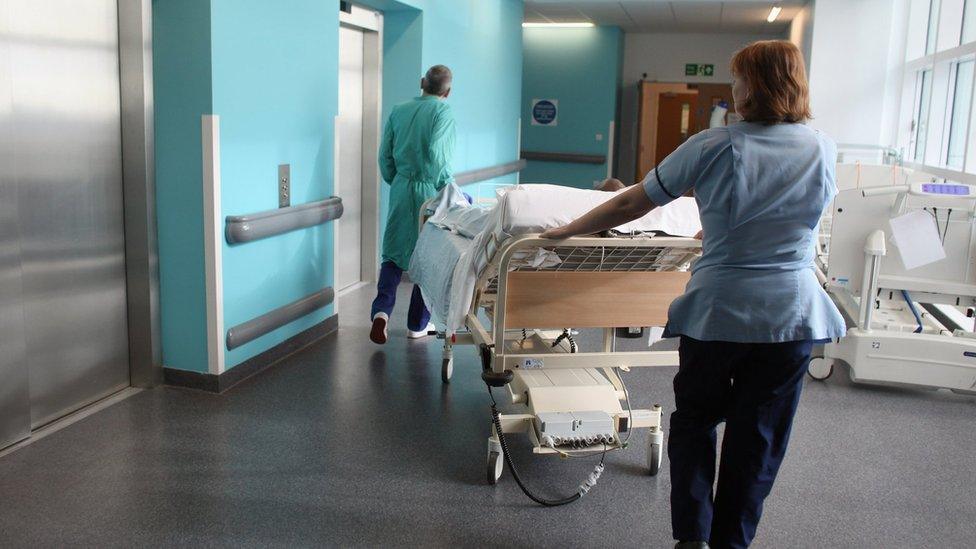
A Labour government would suspend the planned closures of hospital services across England, the party is promising.
It says the national initiative - involving 44 local plans - has lost credibility and needs reviewing.
Under proposals put forward A&E, maternity and stroke units could be scaled back in many parts of England.
NHS bosses - supported by ministers - have launched the programme to modernise the NHS and allow more investment in community services.
But Labour said the process - known as sustainability and transformation plans (STP) - was causing confusion and risked being driven by money rather than what was best for patients.
Earlier this year an investigation by the BBC found hospital services in nearly two thirds of the 44 areas were under threat with widespread concern the infrastructure was not in place in the community to cope.
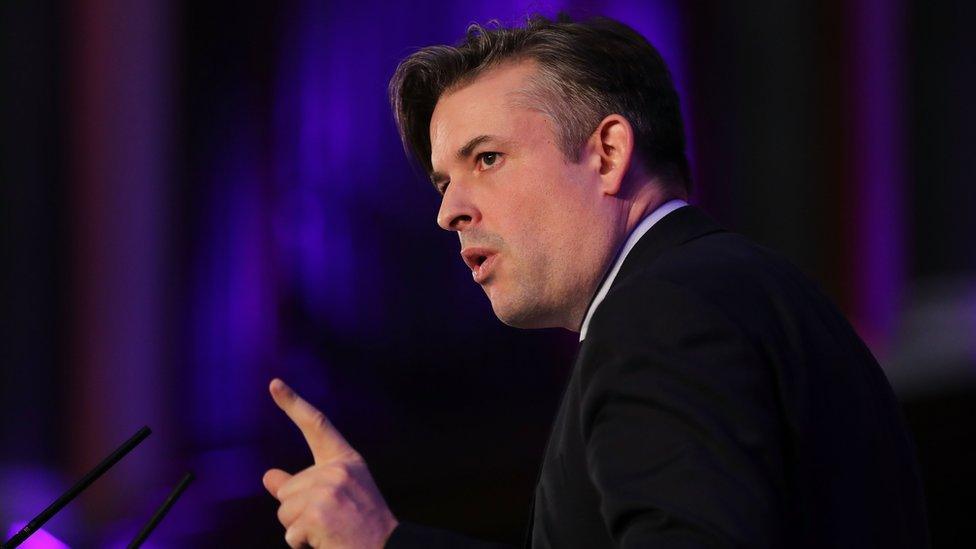
Shadow Health Secretary Jon Ashworth has also promised extra money for NHS staff
Shadow health secretary Jonathan Ashworth said a "moratorium" was now needed so each of the plans could be properly reviewed.
"These decisions have been decided behind closed doors with no genuine involvement of local people.
"It's a disgrace. The public deserves better."
But the Conservatives dismissed the idea and said funding was in place to pay for the changes.
It is Labour's second election announcement on the NHS, following last week's promise to increase pay for NHS staff.

Sorry, your browser cannot display this content.
Need help finding out which region you are in? See the map at the foot of the page.

Why the NHS is making changes
The STP proposals have been drawn up as part of NHS England's five-year strategy to release £22bn of efficiency savings by 2020.
Reviews were set up in early 2016 in 44 different areas led by local managers.
Each area was asked to submit plans to NHS England, which all have done, and public consultations are due to take place later this year where major changes are being proposed.
NHS England has said the programme is not about cutting services, but delivering them in more efficient and appropriate ways.
It believes patients will benefit from more care in the community and say the programme will lead to a range of benefits, including:
new "super" community hubs of GPs, care workers and district nurses
seven-day opening of GPs
better access to hospital specialists in the community
What's the reaction?
Liberal Democrat health spokesman Norman Lamb was also critical of the STP process.
He said they were "based on the fantasy that there is enough money".
"The Conservatives are re-organising the deck-chairs while the good ship NHS is sinking because they are starving it of funds," he added.
But Health Secretary Jeremy Hunt said: "These local plans are developed by local doctors and communities, backed by the top doctors and nurses of the NHS, and will improve patient care."
He said they were "underpinned" by extra funding the health service was receiving up to 2020 and that only the Conservatives could "lock in the economic progress we have made and keep improving the NHS".
Analysis: Is stopping these plans credible?
This is not the first time political parties have tried to make the idea of hospital cuts an issue in an election.
In the run up to the 2010 general election, Tory shadow health secretary Andrew Lansley said he wanted to see a moratorium on hospital closures being proposed.
Some of the changes that were being proposed back then are part of the STP process.

The truth is closing hospital services has been a political "hot potato" for decades.
While there is widespread agreement the NHS is too based around hospitals - over half of the budget is spent on them - changing the status quo has proved difficult.
NHS England has argued shifting care into the community will save money and also benefit patients by providing care in the community and closer to their home.
In theory, that will help them get care at an earlier stage before their condition worsens. Some have estimated that could help save a third of the £22bn efficiency target.
If this is not to happen, Labour needs to set out how it will make savings or whether it will increase the NHS budget by more than is currently planned - and how that will be paid for.

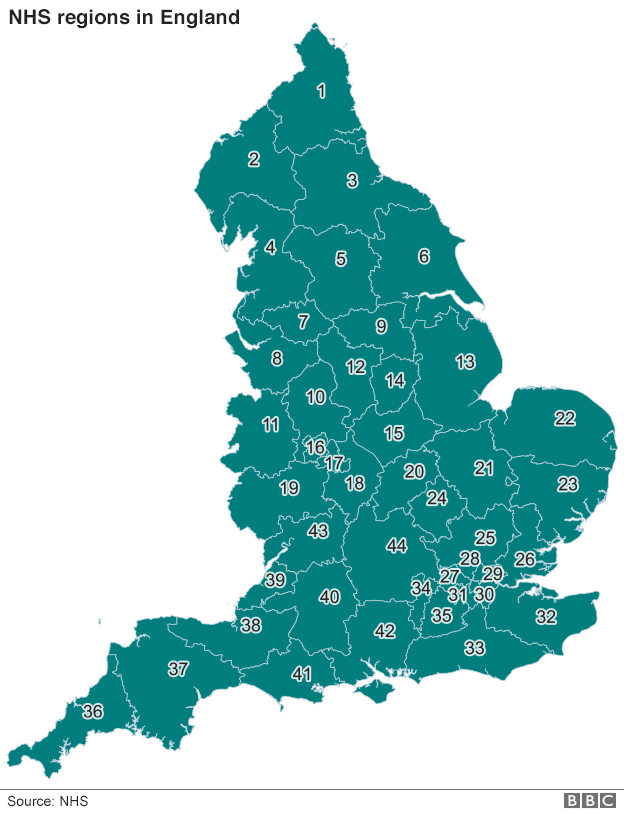
1. Northumberland, Tyne and Wear
2. West, North and East Cumbria
3. Durham, Darlington, Tees, Hambleton, Richmondshire and Whitby
4. Lancashire and South Cumbria
5. West Yorkshire
6. Coast, Humber and Vale
7. Greater Manchester
8. Cheshire and Merseyside
9. South Yorkshire and Bassetlaw
10. Staffordshire
11. Shropshire and Telford and Wrekin
12. Derbyshire
13. Lincolnshire
14. Nottinghamshire
15. Leicester, Leicestershire and Rutland
16. The Black Country
17. Birmingham and Solihull
18. Coventry and Warwickshire
19. Herefordshire and Worcestershire
20. Northamptonshire
21. Cambridgeshire and Peterborough
22. Norfolk and Waveney
23. Suffolk and North East Essex
24. Milton Keynes, Bedfordshire and Luton
25. Hertfordshire and West Essex
26. Mid and South Essex
27. North West London
28. North Central London
29. North East London
30. South East London
31. South West London
32. Kent and Medway
33. Sussex and East Surrey
34. Frimley Health
35. Surrey Heartlands
36. Cornwall and the Isles of Scilly
37. Devon
38. Somerset
39. Bristol, North Somerset and South Gloucestershire
40. Bath, Swindon and Wiltshire
41. Dorset
42. Hampshire and the Isle of Wight
43. Gloucestershire
44. Buckinghamshire, Oxfordshire and Berkshire West
- Published30 April 2017
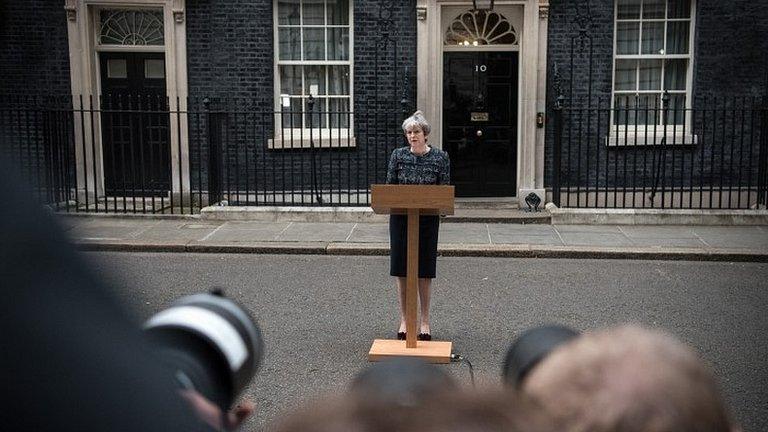
- Published21 February 2017
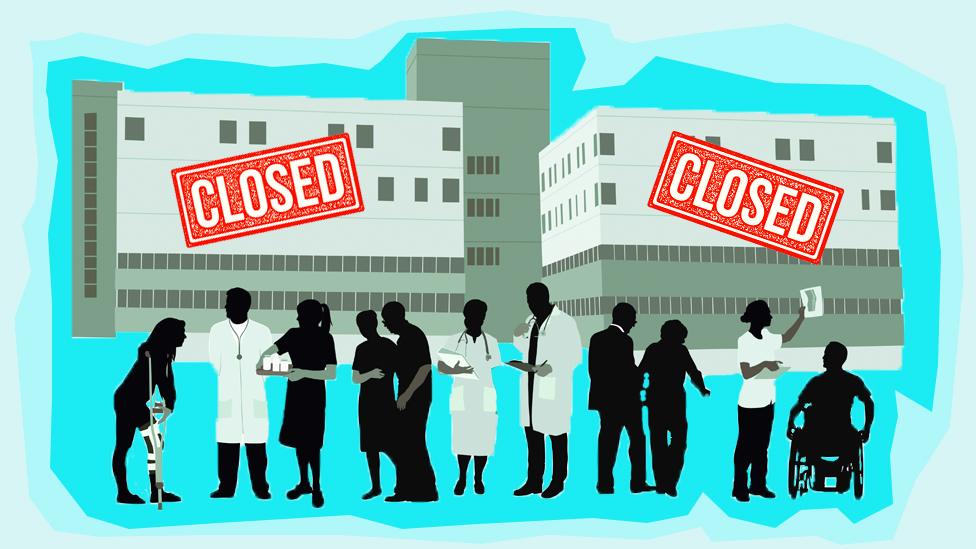
- Published14 November 2016
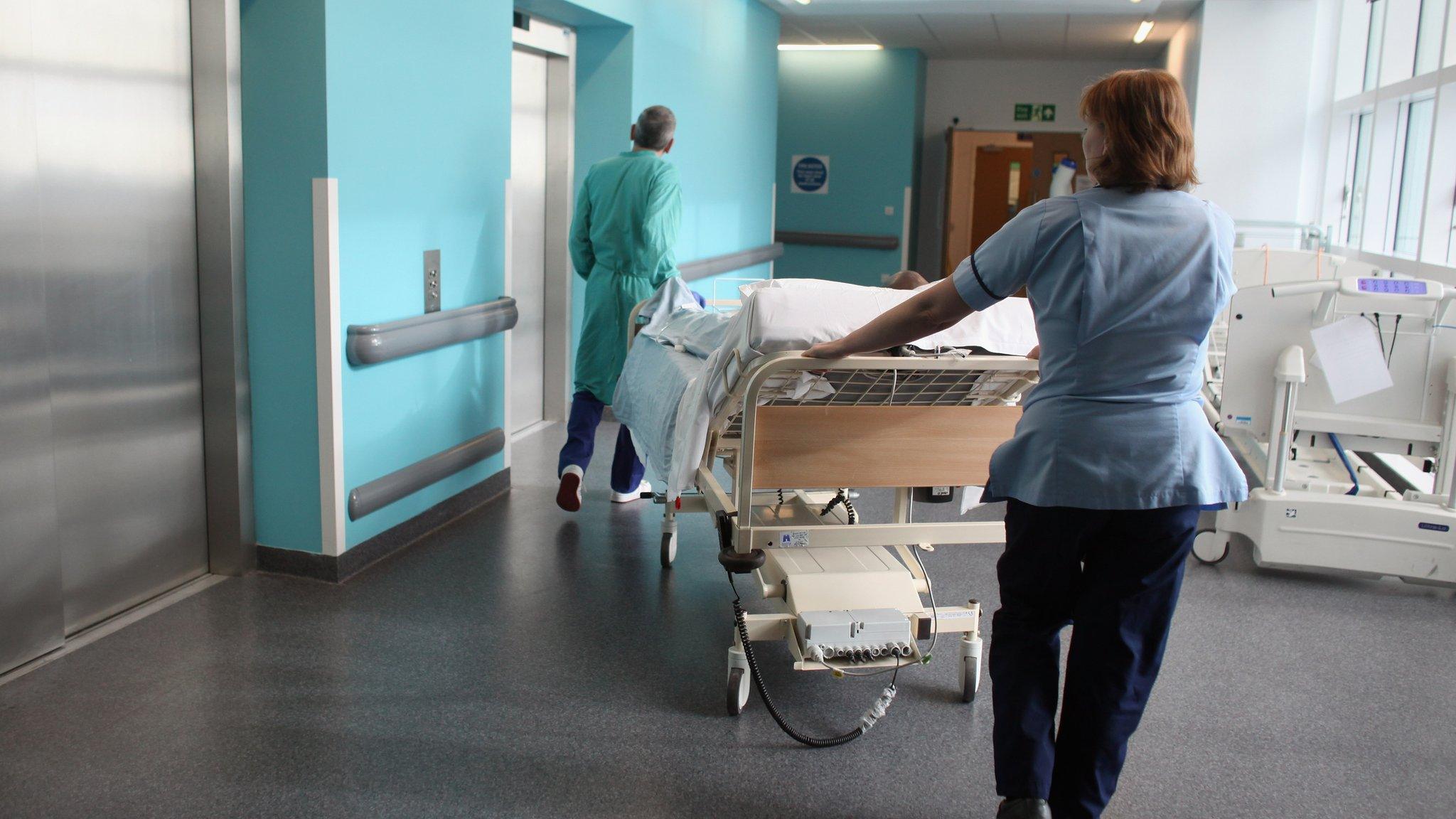
- Published26 August 2016
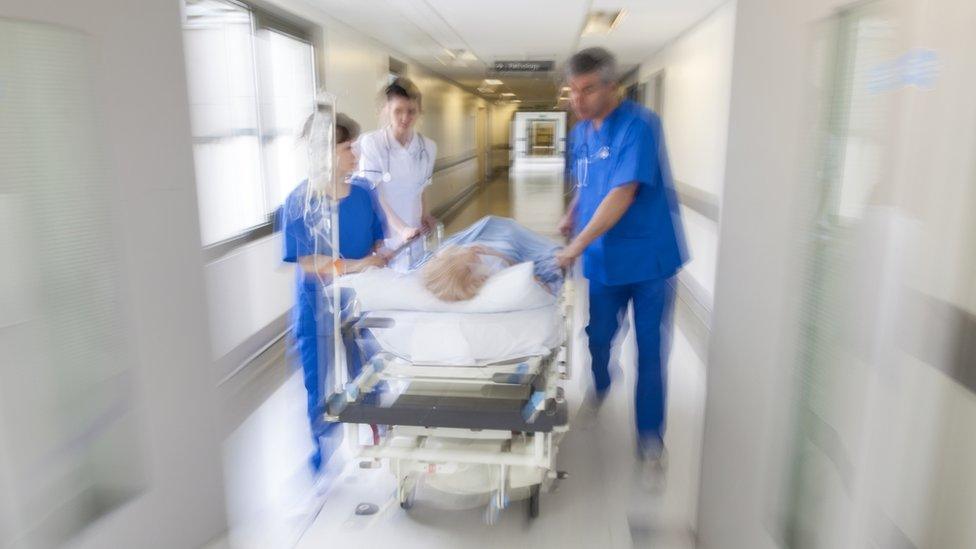
- Published25 August 2016

- Published5 August 2016
- Published15 March 2016